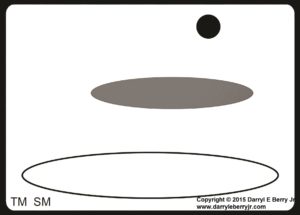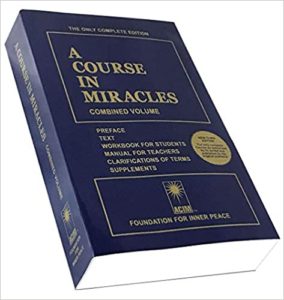
A Review by Darryl E Berry Jr | 15 July 2020
Summary
The documentary Unseen Enemy – produced by CNN Films – could be called a horror movie, in my opinion. Similarly, it could be called an antidote to sleep – it’ll keep you up at night. Directed by Janet Tobias, Unseen Enemy delves into several viral outbreaks including SARS, Ebola, MERS, Zika, smallpox, and influenza – the seasonal flu, Bird Flu, and Swine Flu (00:00:20-02:20; 00:34:05-59; 00:44:20-25). Narrated by Jeffrey Wright, we’re given a front row glimpse as scientists, communities, and families deal with the effects of these illnesses.
We’re informed that the globalization of the world – coupled with the growing compactness of human populations – facilitates the global transmission of viruses (00:03:00-30; 00:07:53-08:15). The incubation periods of diseases – times during which a person is infectious but symptom free – contribute to the effectiveness of viral spread especially in a globally connected world (00:36:13-30). Without major solutions being put in place, we’re told, it’s inevitable that a global pandemic will emerge (00:03:50-59). And this does seem to foreshadow the current coronavirus epidemic (Evans). We’re told in Unseen Enemy that the consequences of pandemics go well beyond a flurry of deaths – as horrific as those are – but also extends to intrinsic impact upon society itself (00:05:30-45).
In turn, each of these pandemics are surveyed. We’re shown direct video footage of the sites of these outbreaks, including personal interviews with directly involved medical personnel. And we’re presented with the interesting observation that “nearly all” of these virulent diseases involve transmission from animals (00:15:14-20; 16:54-17:04; 17:47-18:07), with viral propagation sometimes facilitated by insects (00:02:15-20; 19:09-19:18; 20:31-43). These sometimes-tiny creatures – that we sometimes dismiss as inconsequential – in truth have a quite profound impact upon our lives. It was quite interesting to see discussion of humans and humanity losing a “fight against the mosquito” and the need to “mobilize” to “win the fight” (01:09:21-30). Amazing – man versus mosquito, and we’re losing. How humbling these events are?
Analysis
The documentary did a great job of demonstrating how poverty – what seems to me a result of a tribalistic “haves” and “have-nots” mentality rather than a global community mentality – affects virtually everyone on Earth in regard to potential pandemics. I’m sure there are still those secure behind their ivory walls. But most of the human population is apparently just an obscure and remote animal interaction away from experiencing severe illness or death (19:00-19:18). Through the various cases of outbreak, we’re shown several of the characteristics or qualities that have gone into facilitating these outbreaks.
These characteristics include substandard medical infrastructure (00:12:50-13:12), poor hygiene conditions (00:21:18-26), misdiagnoses of the seriousness of the infection (00:29:59-30:12; 01:05:19-35; 1:07:57-10), and apparently even lack of concern prior to one’s “own” population being affected, whether that includes “other” ethnic groups, or simply poor areas around the world (Zika, par. 7; Unseen, 00:41:29-41:46; 52:37-49; 01:05:32-35). Also included as a major contributor of viral cultivation and transmission are unsanitary meat processing practices (00:38:56-39:35).
Evaluation
Professor Peirce sums up my opinion of what is a viable solution given the information shared in this piece, by saying: “We need to act beyond the boundaries of our own countries” (01:33:28-35). The angle of evaluation put forth regarded “comprehensive actions by governments and societies” and “what steps should governments and societies take in order to prepare and combat global pandemics” (Evans). Suggestions include governmental cooperation through “increasing the global authority of United Nations agencies” or conversely having “each nation-state combat pandemics with full authority within their own borders” (Evans). In my opinion these focuses are the incorrect focuses if we want a real solution to these problems.
Unseen Enemy highlighted to me that the problem is that we don’t care. Just like how we don’t care that the Hawaiian people remain occupied by us – and most of us don’t even know about it (Senate), we don’t really care about each other as human beings. The documentary highlights a “repeating pattern” of governments and societies not helping with outbreaks until individuals outside of the community of the outbreak get sick – that is, until people who are part of the tribe started getting sick (00:52:37-49).
There’s so much that can be said about why trust in government has eroded, as journalist Laurie Garrett points out (01:12:55-01:13:05; 01:33:52-59). But it’s easy to forget that “governments” are just psychological constructs and ways of organizing made up by human beings. Human beings who again, by the fact of our lack of involvement until it very clearly directly or indirectly affects us or the limited realm of humans we identify with, don’t really care. The problem is not what “government” should do, or what “the United Nations” should do, or what “society” should do, but our own selfishness and tribalism and lack of caring.
It’s clear that if we don’t want pandemics, we must do better job of controlling outbreaks (01:22:35-40). But as Dr. Brilliant pointed out: “If smallpox can be eradicated, what about [other diseases] at their source, and never become a pandemic?… We have the tools. We know what to do. It’s merely the application of public will” (1:31:12-31:32). And I’ll augment his statement by pointing out that “the public,” just like “the government,” is simply a euphemism for lot of individual people.
If “government” doesn’t act or “the public” doesn’t act, it simply means that you and I and our next-door neighbor and the person down the street doesn’t act. And in my opinion, we don’t act because we don’t care.
Though the Zika virus affected the population of Africa since 1947 (Zika, par. 6), it wasn’t until after it had spread beyond Africa that it was considered a concern: “Zika has ‘never been thought of as a severe infectious disease until now’,” according to Infectious Diseases Society of America spokesman Amesh Adalja, MD (Zika, par. 7; Unseen, 00:41:29-41:46). If it’s ‘those people over there’ who are poor, or who look differently, then apparently, it’s not a concern. But when people become sick from the tribe we identify with; it becomes a major concern (00:52:00-53:11). In my opinion all the governmental aid that comes out at that point – as needed as it still may be – is still but so much political fanfare and posturing.
But people like Dr. Moses seem to be sincere and present – and not only because they were there at ground zero. It seems clear that those who are personally infected are shown to think of a broader view of solutions (01:29:53-30:05). But in my opinion, as Dr. Moses points out, until we all “learn when it comes to health emergencies, until the entire world is safe, nowhere is safe” (01:32:23-33), it won’t do any good to rely on “government” or “society” or “the public” or any other collective identity concept. These people have shown that they don’t care unless it affects their tribe – and that’s because we don’t. “Governments” are mostly just privileged groups of people, but people just the same. Representative of the larger groups of people that let them be in power. Until we’re all willing to “Be a Global Citizen” (01:36:12) it won’t matter who or what organization we task to solve it. In my opinion, until we develop a general caring for everyone on Earth as our dearest family the problem won’t be solved – regardless of what infrastructure we imagine to be able to do so.
Works Cited
“Zika Virus: What You Should Know”. WebMD Medical Reference, Reviewed by Jennifer Robinson, MD, on 23 October 2018. https://www.webmd.com/a-to-z-guides/zika-virus-symptoms-prevention.
Evans, Samuel. “Writing Assignment (Global Pandemics)”. Intranet post, 13 July 2020.
United States Senate. “S.J.Res.19 – A joint resolution to acknowledge the 100th anniversary of the January 17, 1893 overthrow of the Kingdom of Hawaii, and to offer an apology to Native Hawaiians on behalf of the United States for the overthrow of the Kingdom of Hawaii.” 103rd Congress, 23 November 1993, https://www.congress.gov/bill/103rd-congress/senate-joint-resolution/19/text.
Unseen Enemy. Directed by Janet Tobias, CNN Films, 2017.
Copyright © 2020 Darryl E Berry Jr, Founder of DEBJ-NDC.
www.darryleberryjr.com | www.nextdensity.org
This article may be re-posted provided: 1) re-posted in full, 2) full attribution, including active link to this webpage (if on a website), and 3) prior notification of and confirmation from Darryl E Berry Jr. Contact me at debj@darryleberryjr.com.




